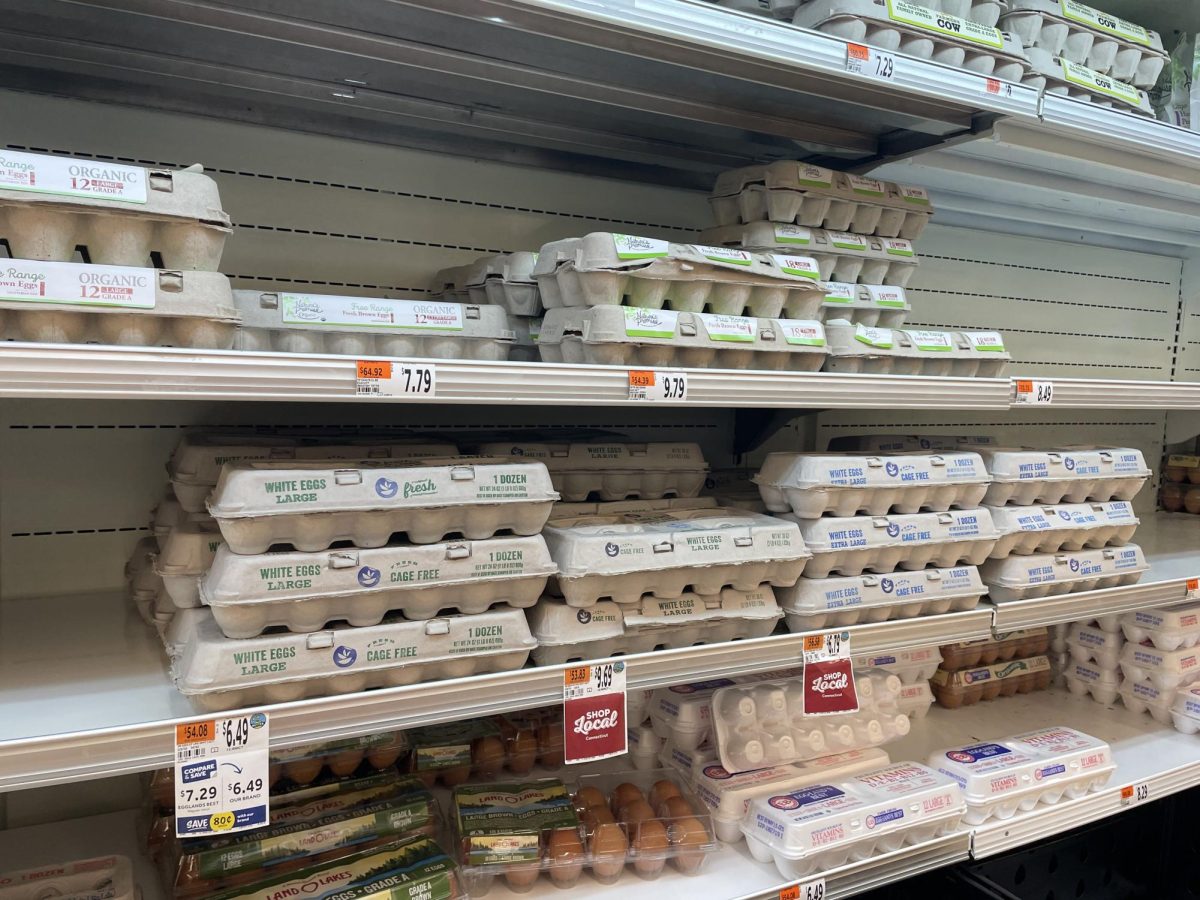You probably didn’t think twice about grabbing eggs to make breakfast last year. Now, you’re wondering if they’re even worth the price. The bird flu outbreak has been affecting poultry farms across the United States, leading to an increase in egg prices.
According to the CDC, bird flu is a disease spread by Avian Influenza A viruses between birds. A strain of bird flu, H5N1, is spreading across the United States, affecting mostly birds and other animals, with some reported human cases.
The virus can spread between animals, particularly birds, through bodily fluids such as saliva. According to Biology teacher Nicholas Gebhardt, the virus also has a high mortality rate, as the immune systems of [domestic chickens] haven’t adapted to this strain of the bird flu. Farmers have been forced to cull their flocks of chickens to stop the spread of the flu. As a result, over 20 million chickens in the U.S. died in three months, either directly from the disease or due to culling.
Currently, bird flu poses a low health risk to the public. There have only been 70 human cases and one death in the U.S., mostly on the West Coast. Although rare, people can still catch the flu by coming into close, unprotected contact with an animal infected with the virus. Human symptoms of the flu include mainly red eyes, a mild fever, and respiratory issues. There are no documented cases of human-to-human transmission of the virus, but if they were to occur, it would be dangerous for the public.
“If there is a mutation in the virus and it starts spreading from human to human, it could kickstart into a big pandemic similar to COVID,” said Gebhardt.

People with bird flu should be treated with an antiviral drug, oseltamivir, which can help reduce symptoms and complications. The CDC is continuing to monitor cases of the flu in animals and humans throughout the US.
Even Americans who don’t regularly interact with poultry are feeling the impact of the bird flu. The culling of chicken flocks and the resulting deaths from this outbreak have led to a nationwide shortage of eggs. As a result, egg prices are now at an all-time high of $6.23 per dozen, compared with prices of $3.08 at this time in 2024. Although eggs are scarce, they are still safe to eat, as there are no cases of people getting bird flu from eating eggs or other dairy products.
Some are finding their way around egg inflation. “I have chickens and they’re really useful right now since we don’t have to buy eggs as often, but sometimes I worry that they will get sick from the flu,” said sophomore Polina Shardakova-Scorzafava.









